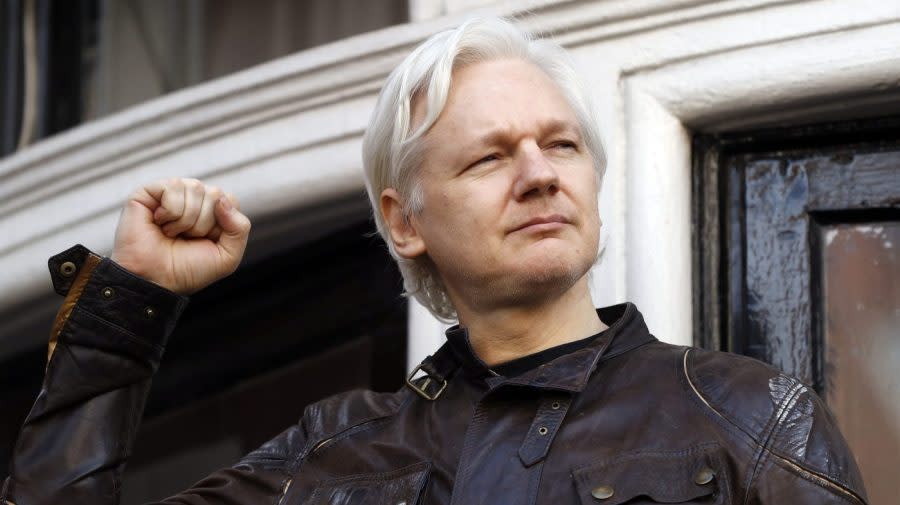Assange can appeal extradition order to US, court rules

- Oops!Something went wrong.Please try again later.
WikiLeaks founder Julian Assange can appeal his extradition order to the United States, a London court ruled Monday.
Two judges, Victoria Sharp and Jeremy Johnson, said Assange has grounds to appeal the United Kingdom’s order for his extradition — a decision that was celebrated by his supporters but one that will likely extend the years-long legal battle over Assange’s fate.
Assange was indicted on 18 charges after his website published of hundreds of thousands of classified military and intelligence documents in 2010. He faces 17 espionage charges and one charge of computer misuse.
Assange’s lawyers argue that their client, who is an Australian citizen, should be protected as a journalist for publishing the classified information. The U.S. government says Assange’s actions extended beyond journalistic activity.
The decision Monday comes two months after Sharp and Johnson ruled Assange could appeal the extradition, unless the United States guarantees Assange would not face the death penalty and that he would be awarded the same First Amendment protections as a U.S. citizen.
While the judges rejected the bulk of Assange’s arguments in March, they said if Assange could not rely on the First Amendment protections, he could argue his extradition would be incompatible with the European Convention on Human Rights’ protections for media and the press, The Associated Press reported.
Assange’s legal team argued Monday that the U.S. gave “blatantly inadequate” assurances that Assange would have free press protections. The U.S. said Assange could seek to rely on the First Amendment, but the decision ultimately would be up to a judge.
“The real issue is whether an adequate assurance has been provided to remove the real risk identified by the court,” Assange’s lawyer, Edward Fitzgerald, said Monday. “It is submitted that no adequate assurance has been made.”
U.S. attorney James Lewis argued Assange’s conduct was “simply unprotected” by the First Amendment.
“No one, neither U.S. citizens nor foreign citizens, are entitled to rely on the First Amendment in relation to publication of illegally obtained national defense information giving the names of innocent sources, to their grave and imminent risk of harm,” U.S. attorney James Lewis argued.
Assange has been in British custody since 2019, when the Ecuadorian government revoked his political asylum status after seven years and booted him from their London embassy.
The Associated Press contributed.
For the latest news, weather, sports, and streaming video, head to The Hill.

